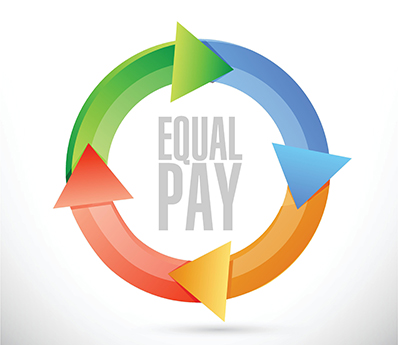
When we last checked in on AB 1209, the Gender Pay Gap Transparency Act, the proposed legislation was making its way through the California Senate. After making a few key amendments, the Senate passed the bill on September 7, 2017. The California Assembly approved the amendments on September 11, 2017, and now the fate of AB 1209 lies in the hands Governor Jerry Brown.
AB 1209 is proposed legislation that would require large employers to collect gender pay statistics and report gender pay disparities to the California Secretary of State, which would in turn publish this information on a public website. Specifically, the bill would require employers with 500 or more employees in California to collect and report information identifying, by each job classification or title, the difference between:
- The mean wages of male and female exempt employees in California;
- The median wages of male and female exempt employees in California;
- The mean wages of male and female board members located in California; and
- The median wages of male and female board members located in California.
Should Gov. Brown sign AB 1209 into law, employers would be required to begin collecting this pay gap data as of July 1, 2019 and reporting it to the California Secretary of State as of July 1, 2020.
Since we first looked at the bill, the California Senate made a few significant modifications:
First, the California Senate amended the bill to apply only to employers with 500 or more (rather than 250 or more) employees. Not only does this narrow the universe of impacted employers, but, as discussed in our prior Equal Pay Pulse post, it also reduces the impact that outliers will have on mean and median gender pay statistics. Despite this, however, the mean and median gender pay statistics likely will not provide a full and accurate pay equity picture, as they do not account for the factors that typically drive compensation and account for pay differences, such as experience, education, seniority, etc. This is particularly true where a company has a small number of employees in a given position, making outliers that much more impactful on the reported statistics. Relatedly, AB 1209 would require employers to report gender pay statistics by job classification or title, a categorization untethered to the California Fair Pay Act standard of “substantially similar work.” Accordingly, depending on how an employer classifies its employees, the same job classification or title could incorporate wide swaths of employees who perform vastly different tasks with different skill levels. Should Governor Brown sign AB 1209 into law, employers may want to reconsider their job classification or job title groupings.
Second, in an apparent attempt to minimize the damage that potentially misleading statistics may cause, the amendments clarify that the existence of a gender wage differential does not in itself reflect a violation. While this language certainly is helpful, it likely will not foreclose negative press or prevent employees from seeking to rely on gender wage differentials to demand recompense – either internally or through litigation.
Third, the California Senate amendments also relaxed the required reporting from annually to every other year and confirmed that these requirements apply only to employees located in California.
While the California Senate’s amendments somewhat lessen the potential blow to employers, they do not mitigate the public shaming aspect of the bill that would require the California Secretary of State to publish employers’ gender pay gap statistics online. The purpose here appears to be to use the power of public accountability to nudge employers toward greater pay equity, but such a requirement will have legal implications for how companies collect this information. If AB 1209 becomes law, companies should be strategic in how they use counsel to meet their data collection and reporting obligations, as there may be privilege implications in that the information is likely to become publicly available.
Although it remains yet to be seen whether the Governor will sign AB 1209, the bill is one step closer to becoming the law of the land in California. If it passes, employers should consider getting ahead of the requirements by working with counsel to conduct a privileged review of their pay practices before 2019 to address potential gender-based pay discrepancies.

